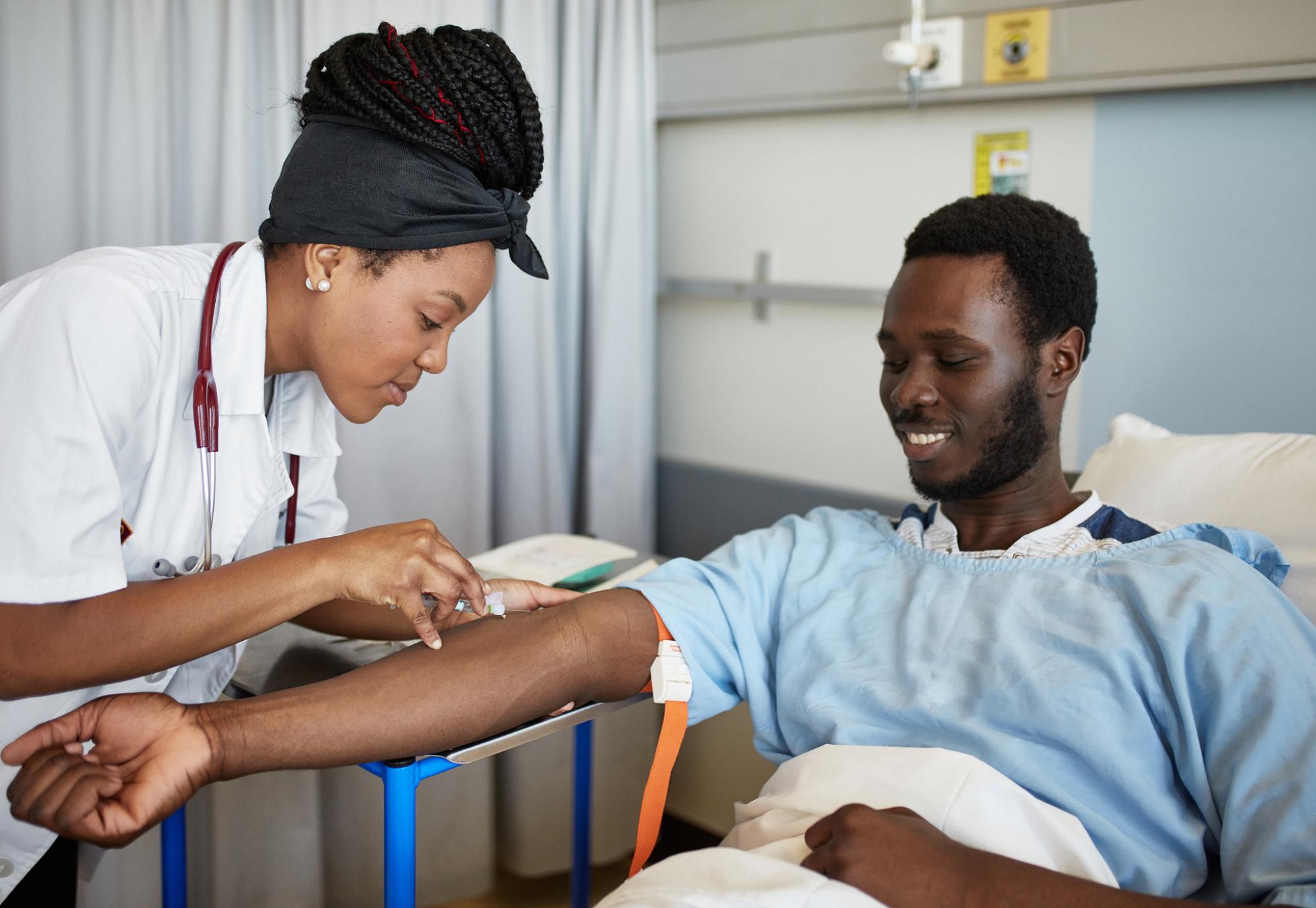From the end of 2021, a question on sexual activity of partners in areas where HIV is widespread will be removed from the donor safety check form, in an effort to increase inclusivity among donors.
The changes will particularly improve the ease to donate blood for Black African donors.
Currently, prospective donors are asked if they have recently had sex with a partner who may ever have been sexually active in an area where HIV is endemic, which includes most of sub-Saharan Africa. If they have, the donor will then be deferred for three months after the last sexual contact with that partner.
This can often mean Black African and other potential donors in long-term relationships have been unable to donate blood.
Now, the UK Government has outlined plans to remove the question from those asked in the donor safety check, opening the door to a greater number of donations.
All proposed changes have been recommended based on the latest scientific evidence, which suggests the changes will have no impact on the safety of blood donated in the UK.
Research conducted by the FAIR (For Assessment of Individualised Risk) steering group, supported by the Advisory Committee on the Safety of Blood, Tissues and Organs (SaBTO), agrees that the question can safely be removed.
Other questions remain on the donor form to ensure individual, high risk behaviours – including recent travel to countries where HIV is endemic – are picked up and those donors will still be deferred from donation.
Increasing blood donor inclusivity for those who are Black African, Black Caribbean, and of Black mixed ethnicity is particularly important because they are more likely to have the rare blood sub-group, such as Ro, that many Black sickle cell patients need.
The change, making it easier for people from these groups to donate, will create greater opportunities to meet the ongoing need for rarer blood types and help improve and save lives in the UK.
It will also improve inclusivity and equity for Black African and other donors.
Health and Social Care Secretary, Sajid Javid, said: “This is another progressive step forward, focusing on individual behaviours, rather than blanket deferrals, and reducing limitations for people to donate blood.
“This will make it easier for black donors in particular to donate blood, ultimately saving lives.
“We are creating a fairer system for blood donation. And as we recover from this pandemic, we are committed to levelling up society, which includes improving access to services for everyone.”
Chair of SaBTO, Professor James Neuberger, added: “As SaBTO Chair, I welcome the announcement made by ministers to remove the question from the blood donor safety check that asks donors whether they have recently had sex with a partner who may ever have had sex in an area where HIV is endemic.
“SaBTO members reviewed the findings from the FAIR steering group and unanimously agreed that removal of the question would not negatively impact on the safety of blood supply. This is a positive step towards equality, informed by evidence, helping to create a fairer system for blood donors without affecting the safety of the blood supply.”
The changes follow other, similar recommendations from the FAIR steering group, a collaboration of experts in the UK blood services and LGBT+ charities led by NHS Blood and Transplant (NHSBT), established in 2019.
The steering group’s role is to look at the implications of the questions asked and conclude if any could be safely removed.
Already, changes have been made in blood donation criteria around male homosexuality, with this latest recommendation further opening the door for people around the UK to donate blood safely.



















